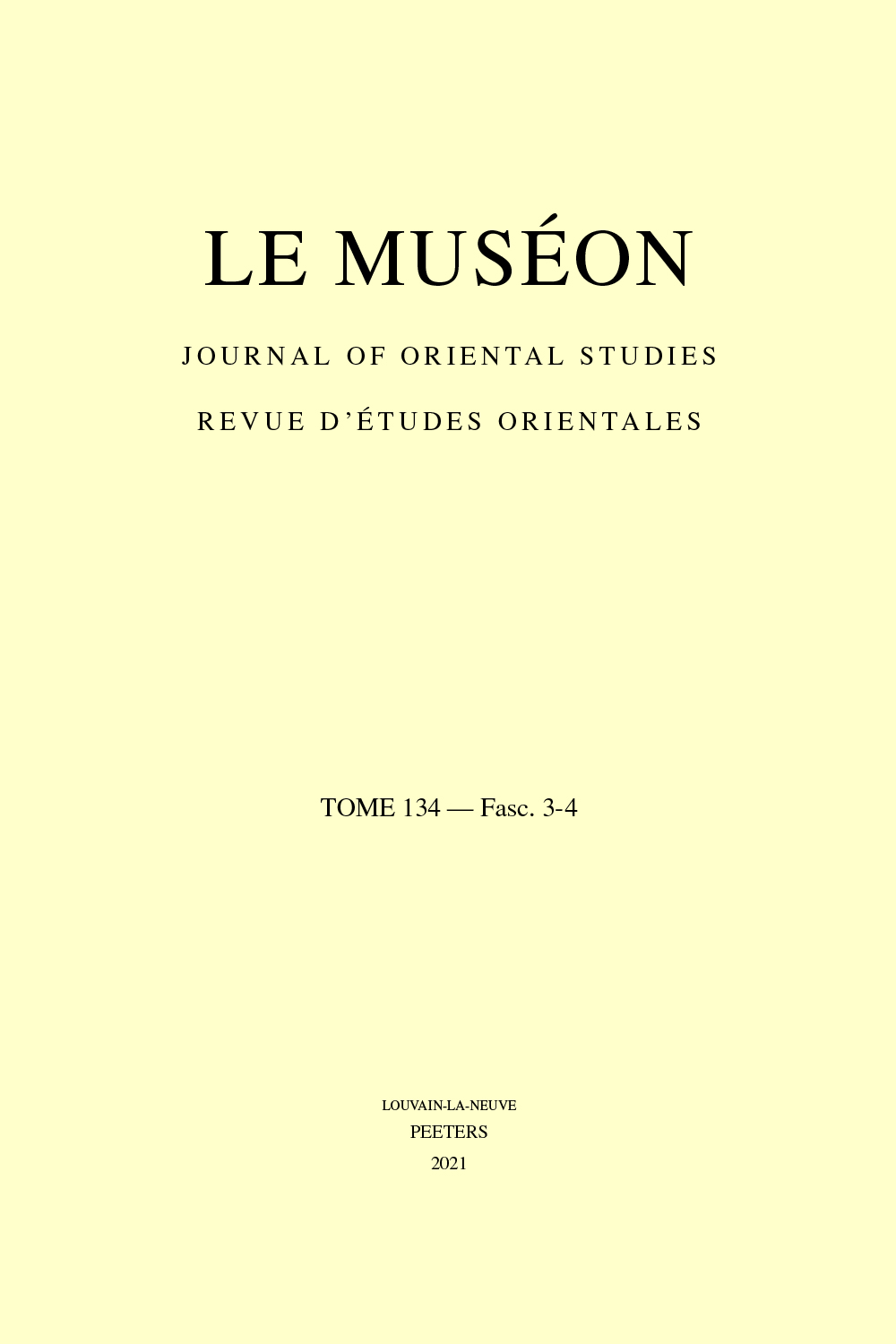 previous article in this issue previous article in this issue | next article in this issue  |

Preview first page |
Document Details : Title: Reading Early Christian Authors in Medieval Monastic Communities Subtitle: A Syriac Monastic Miscellany from Ṭur 'Abdin (Harvard University, Syr. 108/18) Author(s): FORNESS, Philip Michael Journal: Le Muséon Volume: 134 Issue: 1-2 Date: 2021 Pages: 79-102 DOI: 10.2143/MUS.134.1.3289398 Abstract : Many early Christian writings only survive to the present through their circulation in anthologies. One type of anthology – the monastic miscellany – describes collections designed for monks and offers important insight into the reading practices of these communities. This article closely examines a set of six loose folios that once formed part of a monastic miscellany: Harvard University, Houghton Library, Syr. 108, Folder 18. The script and contents of this manuscript connect it to the production of monastic miscellanies in the late fifteenth or early sixteenth century in Ṭur 'Abdin, a region now in southeastern Turkey with many historically important monasteries. The manuscript includes ten different works that are attributed to Gregory the Wonderworker, Ephrem, Nilus of Ancyra, and Jacob of Serugh. One work comes from the Syriac Book of Steps, while another reworks parts of Isaac of Nineveh’s writings. The description of the physical features and content of this manuscript contributes to the analysis of monastic miscellanies in general. Such collections suggest the ways that early Christian authors were read in monastic communities in the Middle Ages. |
|


